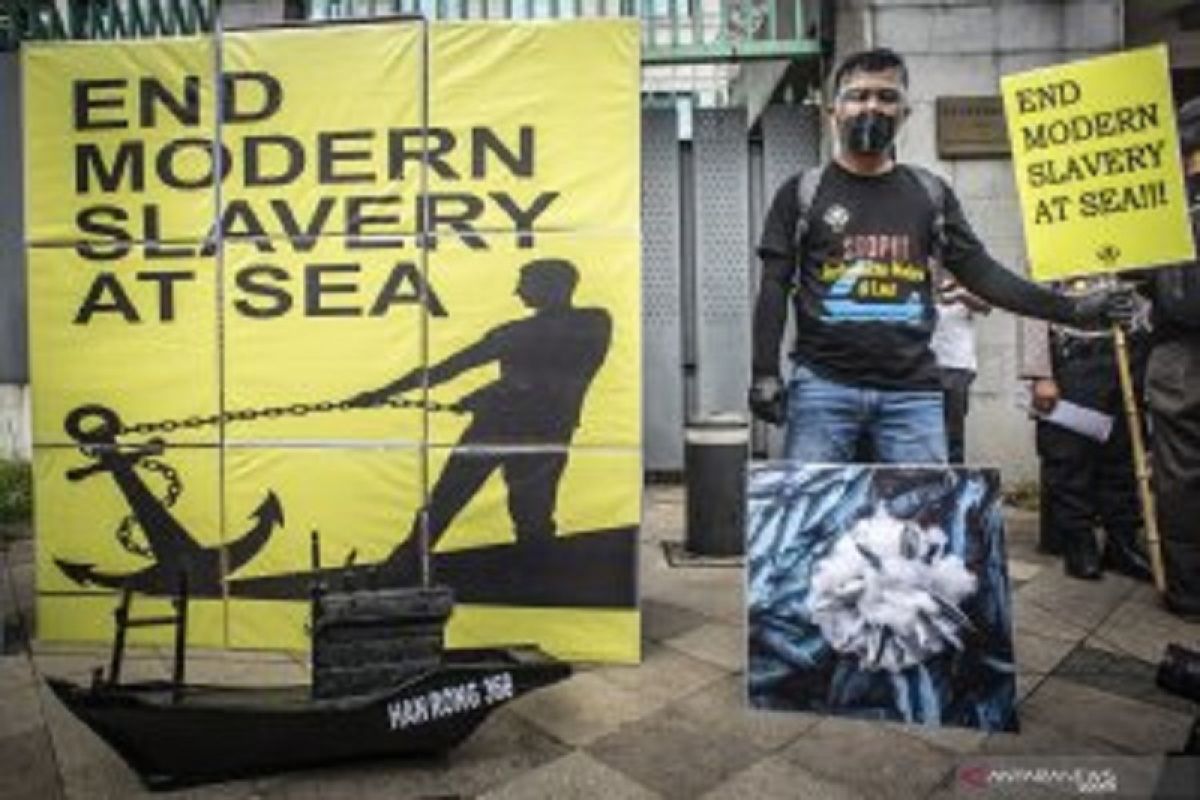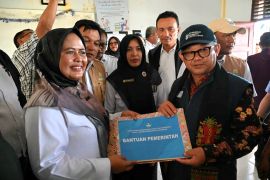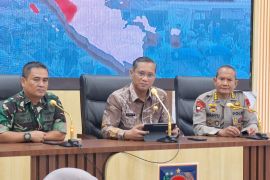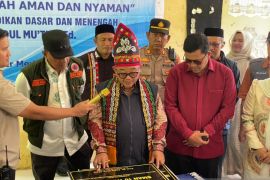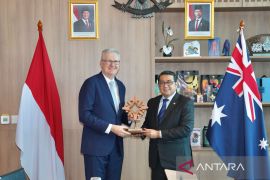As a result, it is difficult to conduct tracking and protectionJakarta (ANTARA) - The news of three Indonesian sailors, who died aboard two Chinese fishing vessels, Long Xin 629 and Long Xin 604, grabbed headlines in May 2020.
The sailors died in December 2019 and March 2020 while the fishing boats were sailing in the Pacific Ocean, and their bodies were buried at sea. News of their deaths went viral after it was reported by MBC, a South Korean TV station.
One Indonesian seafarer told MBC during an interview that the sailors faced discrimination on Chinese vessels and also worked in inhospitable conditions.
Such experiences of Indonesian sailors aboard foreign fishing vessels exposed the actual working conditions of Indonesian migrant workers, especially those working in the maritime sector, according to Migrant CARE.
It also pointed out that Indonesian migrant workers in the maritime and fisheries sectors remained vulnerable to modern slavery practices.
In the wake of this grim reality, the Indonesian government has continued to defend the legal rights of Indonesian seafarers through the mutual legal assistance pact signed with other countries.
However, such a measure of handling this situation seems insufficient to solve the problem encumbering Indonesian seafarers abroad.
Deputy for Maritime Sovereignty and Energy Coordination at the Coordinating Ministry for Maritime Affairs and Investment Basilio Dias Araujo drew attention to three root causes behind the weak protection to Indonesian seafarers and crews on foreign fishing vessels.
Araujo said the first cause was the national education and training curricula for seafarers and crew members that had not been synchronized with the Standard of Training, Certification and Watchkeeping for Fishing Vessel Personnel (STCW-F) since the Ministry of Marine Affairs and Fisheries had not budgeted funds to purchase the IMO standard curriculum syllabuses that cost about Rp60 million (around US$4,293) per package and had to be purchased from Singapore.
The International Maritime Organization (IMO) is the United Nations specialized agency tasked with the safety and security of shipping and the prevention of marine and atmospheric pollution by ships.
According to Araujo, the second reason was the shortfall in national management to regulate the placement companies for seafarers and crew members.
He explained that the third cause was the absence of a nationally integrated database between ministries and institutions that serve as a reference to trace the whereabouts of Indonesian seafarers and crews aboard foreign fishing vessels.
"As a result, it is difficult to conduct tracking and protection," Araujo remarked while highlighting the complex problems that had to be tackled immediately between relevant ministries and institutions in the country.
To respond to various cases of neglect, exploitation, slavery, unpaid wages, and other human rights violations against Indonesian seafarers and crew members, the Coordinating Ministry for Maritime Affairs and Investment in 2019 had formed a National Team for the Protection of Seafarers and Fishing Ship Crew Members, with relevant ministries and institutions as members.
Strengthening protection
Moreover, in a bid to strengthen the protection efforts, the Indonesian government, through the Coordinating Ministry, had formulated a National Action Plan for the Protection of Seafarers and Fishing Ship Crews (RAN-PPAKP).
"Responding to the many cases of neglect of our ship crews abroad, we, at the Coordinating Ministry, continually strive to improve the management of protection of Indonesian seafarers and fishing ship crews," Araujo noted in a written statement received by Antara on Tuesday (Feb 9).
He explained that formulation of the national action plan aims to ensure adequate protection to every Indonesian citizen, especially those working in the fisheries and maritime sectors, both at home and abroad.
Furthermore, the formulated National Action Plan for the Protection of Seafarers and Fishing Ship Crews, along with its attachments for the 2021-2024 period, are scheduled to be submitted for stipulation in a presidential regulation. However, the coordinating ministry did not specify the exact date for the submission.
"We are very serious about improving the national management for the protection of Indonesian seafarers and crew members, and in the near future, we will prove to the international community that we have sufficient national laws for the matter ... and that Indonesia can also set a good example for member countries of the International Maritime Organization, International Labor Organization, and other international organizations," Araujo affirmed.
He emphasized the importance of this national action plan for the protection of Indonesian seafarers by highlighting that during the 2017-2020 period, some 5,371 Indonesian sailors and crew members had become victims of neglect and exploitation, especially while working abroad.
In 2020 alone, 20 fishery seafarers had reportedly died aboard foreign vessels.
Related news: Moratorium on seafarer recruitment short-term answer: ministry
Related news: Unraveling truth behind Indonesian seafarers' deaths on Chinese boats
In fact, those figures are not considered to reflect the true data since many cases involving Indonesian seafarers abroad were yet unrecorded or unreported. This occurred since several Indonesian sailors and crew members had departed and worked abroad through independent channels, while some looked for job vacancies on their own.
Moreover, the economic aspect indicated the importance of protecting Indonesian seafarers and crew members. Those seafarers, who become migrant workers and work in the maritime or fisheries sector abroad, can contribute Rp150 trillion (around US$10.73 billion) per year of foreign exchange to the country.
"Hence, if our seafarers and crew members, whose numbers reach more than one million, are able to contribute such a large amount of foreign exchange, it means that we are obliged to provide proper protection to them, for which their protection should be managed properly," Araujo remarked.
Currently, Indonesia ranks third in the world as a country, with the largest number of seafarers after China and the Philippines. Based on data from the UN Conference on Trade and Development (UNCTAD), some two million seafarers in the world work on over 980 thousand commercial vessels and transport more than 11 billion tons of global trade products.
In addition to further enhancing protection, the National Development Planning Board (Bappenas) has encouraged the implementation of training and capacity building programs for Indonesian seafarers and crews, one of which is by mapping and preparing vocational programs for human resources in the maritime and fisheries sector.
Director of Monitoring, Evaluation, and Control of Sectoral Development at Bappenas Adhi Putra Alfian stated that the capacity building program is projected to hone the abilities and expertise of the Indonesian seafarers and crew members, and in turn, help to boost their income and welfare.
"We do not want to lose the good momentum of this (national action plan), so the identification of programs and national priority scales for capacity building of our seafarers and crew members is very important," he affirmed.
A thorough understanding of the laws and regulations on the protection of seafarers as well as sufficient expertise and skillsets will help and strengthen the position of Indonesian seafarers and crew members to fight for their basic rights and welfare.
Related news: Protection of Indonesian nationals overseas remains priority in 2021
Related news: Over 150 sailors working on 12 Chinese fishing vessels repatriated
EDITED BY INE
Editor: Fardah Assegaf
Copyright © ANTARA 2021
